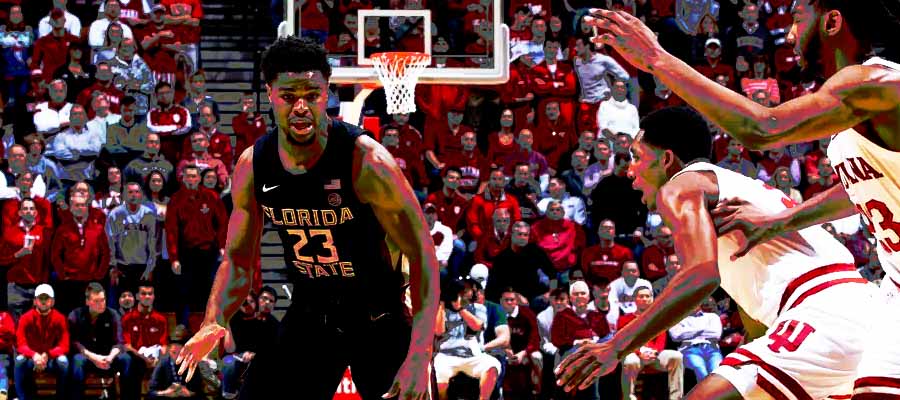We found out in September that the 2020-2021 college basketball season could begin on November 25, which meant that teams could play non-conference games. This should make for some more cross-conference data points for the selection committee to use in formulating the March Madness field. However, there could also be a disparity in number of games played, as there is in football, depending on which conferences decide to start play on which date.
As you consider online betting on men’s college basketball futures, let’s look at what this season should look like.
NCAA News: Men’s College Basketball Preview
How large will the tournament fields be?
Currently, the NCAA plans to keep the men’s tournament at 68 teams and the women’s tournament at 64. If the NCAA decided to shrink the tournament to 32 teams, things would get interesting. There are currently 32 automatic qualifiers on the basis of conference titles. Would the NCAA have those qualifiers enter, or would they committee pick the best 32 teams, no matter what conference they play in? If this were a one-year anomaly, this might not change the NCAA much, but in the second scenario, if the Power Five conferences felt slighted, it could lead to the Power 5 conferences moving out of Division I and into their own league. The NCAA has moved on thin ice for some time now, as the Power Five chafe under the limitations of having to deal with the rest of the collegiate universe.
Will there be conference tournaments?
This will depend on where we are in terms of a vaccine and how few outbreaks there are in college programs. Basketball is an indoor game (which means recirculated air), and there is absolutely no social distancing in a sport with man-to-man defense, pick-and-roll plays, and boxing out for rebounds. So the outbreaks are likely to come, which will send programs into chaos with or without the conference tournaments.
With that said, there was a time when there were no conference tournaments, and the automatic qualifier came from the regular season champion in each conference. That adds a premium to the regular season games. A team’s performance running through the months of conference play is a better predictor of that team’s likely outcome in March Madness anyway (UConn’s 2017 title run notwithstanding). So why add another layer of travel and COVID-19 testing to an athletic department’s hassle?
Can Gonzaga actually win a national championship?
The Bulldogs picked up one of the nation’s top recruits in Jalen Suggs, and Corey Kispert returns to key a potent lineup. Joel Ayayi can fill up the basket. Drew Timme should play even better than he did last year. The Bulldogs need to win this year if Suggs is going to help them do it, because he’s the sort of player who does one-and-done to join an NBA team as a lottery pick.
The Gonzaga offense looks like a perpetual motion machine, and that ball movement gets them open looks that helps them shoot from inside the arc at levels other teams dream about. On defense last year, they were down in blocks and forced misses in the paint. That interior defense has to stiffen if they are going to contend. Gonzaga has figured out how to schedule their way to a top seed and almost won it all in 2017, falling to North Carolina in the final. The only reason I think Mark Few won’t win a title at Gonzaga is that his team is in the West Coast Conference. That means that, for two months, his team has maybe four tough games — St. Mary’s (CA), and BYU, home and away. That’s it. The rest of conference play involves teams like San Francisco and the University of San Diego. Playing cupcakes for two months is not the crucible a team needs to win six straight games against increasingly elite competition, particularly when that competition has come out of a gauntlet of tough conference play.
College Basketball Betting Odds
Love betting NCAA basketball? | Xbet Sportsbook offers up to date college basketball lines







